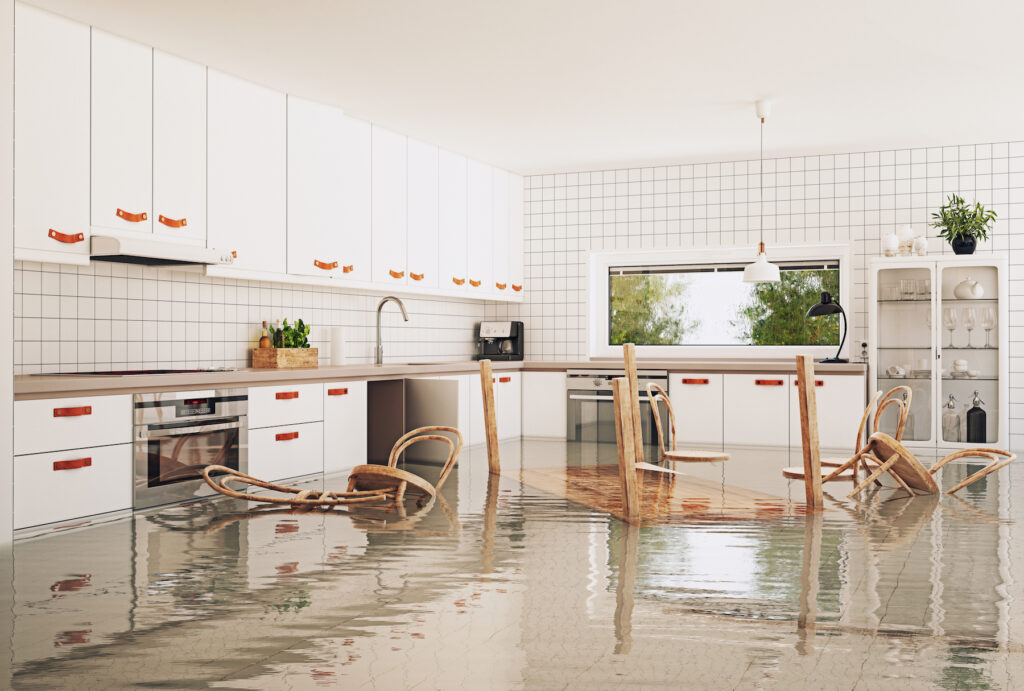Georgia’s diverse landscape, including the bustling Greater Atlanta area, is no stranger to the challenges posed by water and flooding. Whether it is a sudden downpour or a pipe bursting, understanding the disparities between water and flood damage is vital for Georgia homeowners and those that manage properties.
Unpacking the Differences Between Water & Flood Damage
Water Damage: Water damage typically refers to any form of damage caused by water intruding into areas it shouldn’t be, such as homes, businesses, or other properties. This can include scenarios like burst pipes, leaky roofs, faulty appliances, or plumbing issues. Water damage is usually localized and can be caused by internal factors within the property.
Flood Damage: On the other hand, flood damage specifically pertains to the inundation of large amounts of water onto normally dry land. This can result from various external factors like heavy rainfall, storm surges or rivers overflowing. Unlike water damage, flood damage affects a broader area and often involves more extensive destruction.
What Is Included in Insurance Policies
Understanding how water and flood damage are treated by insurance companies is paramount for Georgia residents.
Water Damage Coverage: Georgia homeowners’ insurance policies generally cover water damage stemming from internal sources, like burst pipes and roof leaks. These policies typically cover sudden and accidental water damage that results from issues within the property. However, coverage may vary, and it’s essential to review your policy’s terms and limitations.
Flood Damage Coverage: In Georgia, as in many other states, flood damage, which is the result of external water sources like heavy rainfall, is typically not covered by standard homeowners’ insurance policies. Instead, it requires a separate flood insurance policy, usually offered through the National Flood Insurance Program (NFIP). Some private insurers also offer flood insurance, so it’s crucial to explore your options particularly if your property is in a flood-prone area.
Mitigating Water and Flood Damage
Prevention is key when it comes to minimizing the risks of both water and flood damage:
Water Damage Prevention:
- Regular Maintenance: Perform routine checks on plumbing, appliances and roofing to identify and fix issues before they escalate.
- Proper Drainage: Keep gutters and downspouts free of debris, directing water away from the foundation.
- Sealants and Insulation: Apply sealants to vulnerable areas and insulate pipes to prevent freezing and bursting during colder months.
Flood Damage Prevention:
- Elevate Electrical Systems: Raise electrical outlets, switches, and wiring above potential flood levels.
- Foundation Sealing: Seal any cracks in your foundation and consider applying coatings to prevent water seepage.
- Landscaping: Create grading that directs water away from your property and opt for flood-resistant landscaping.
Responding to Water and Flood Damage
Despite the best precautions, emergencies can still occur. If you experience water or flood damage:
- Ensure Safety: Prioritize safety and evacuate if necessary. Stay away from electrical hazards and standing water.
- Document Damage: Take photographs and videos of the damage for insurance claims.
- Notify Insurers: Contact your insurance provider to initiate the claims process promptly.
- Mitigate Further Damage: Take steps to prevent additional damage, such as placing tarps over leaks or moving valuables to higher ground, but only if it is safe to do so.
- Contact Apex Disaster Management: Call us 24/7 so we can assess and address the damage and get you back to where you were prior to the emergency.

